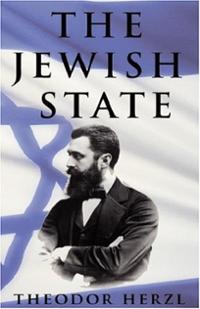The economics of Theodor Herzl and his Zionist vision
I had never read The Jewish State before, so I was surprised to see how much economics it contained. Here are a few points, most but not all economics:
1. Herzl considered Argentina as a possible alternative to Palestine for the Jewish state.
2. Zionism would require the creation of a large land acquisition company, to sell the homes of departing Jews in an orderly fashion and to coordinate real estate purchases in the new Jewish home. It would be incorporated in London as a joint stock company under English law. Many of the shareholders likely would be Christians.
3. In essence swapping European homes (and businesses) and arbitraging into cheaper homes would allow the joint stock company to turn a profit, thereby financing a new Jewish society and state. The company also would ensure that Jewish buyers of the new lands do not overpay, and provide a liquidity bridge so that Jewish businesses in Europe could be sold at fair prices to Christians. Some parts of Herzl’s description one can interpret as seeing the foundation of the forthcoming “state of Israel” as a kind of sovereign wealth fund, combined with micro-lending functions. Herzl doesn’t quite spell out all the links, but I sense an understanding that the company will bring together settlers, internalize urban externalities, and boost real estate values, thereby creating another source of both profit and social value.
4. As for the new setting, “the detached houses in little gardens will be united into attractive groups in each locality.” The cited architectural model was the United States, but with one crucial modification: houses will be arranged so that the Temple is visible from a great distance.
5. The main initial labor source would be poor Jews from Rumania and Russia. After spending three years building homes, they would receive homes of their own. During the early years of settlement, this process would be run in part like a “company town,” with some payments in services to allow for subsistence.
6. The regular working day would not exceed seven hours. Overtime pay always should be in terms of cash, never barter. The joint stock company also will serve as a very large labor union/cartel to help enforce these terms for work.
7. The new society also would create “comprehensive modern Jewish statistics” to help matters run smoothly.
8. “Making markets” through the above-discussed profit-seeking means is likely to be more successful than philanthropy-induced settlement.
9. Democratic monarchy is the best form of government, but impractical for the new Jewish state, because the kings of earlier times are now gone. So the new state should try to model itself upon the old aristocratic republic of Renaissance Venice, which is otherwise the best system of government known to mankind (Gordon Tullock would have agreed). The new government was not to be a theocracy.
10. Throughout I was reminded of Edward Gibbon Wakefield, the famed theorist of Antipodean colonization, yet that connection does not seem to have been noted by the literature.
